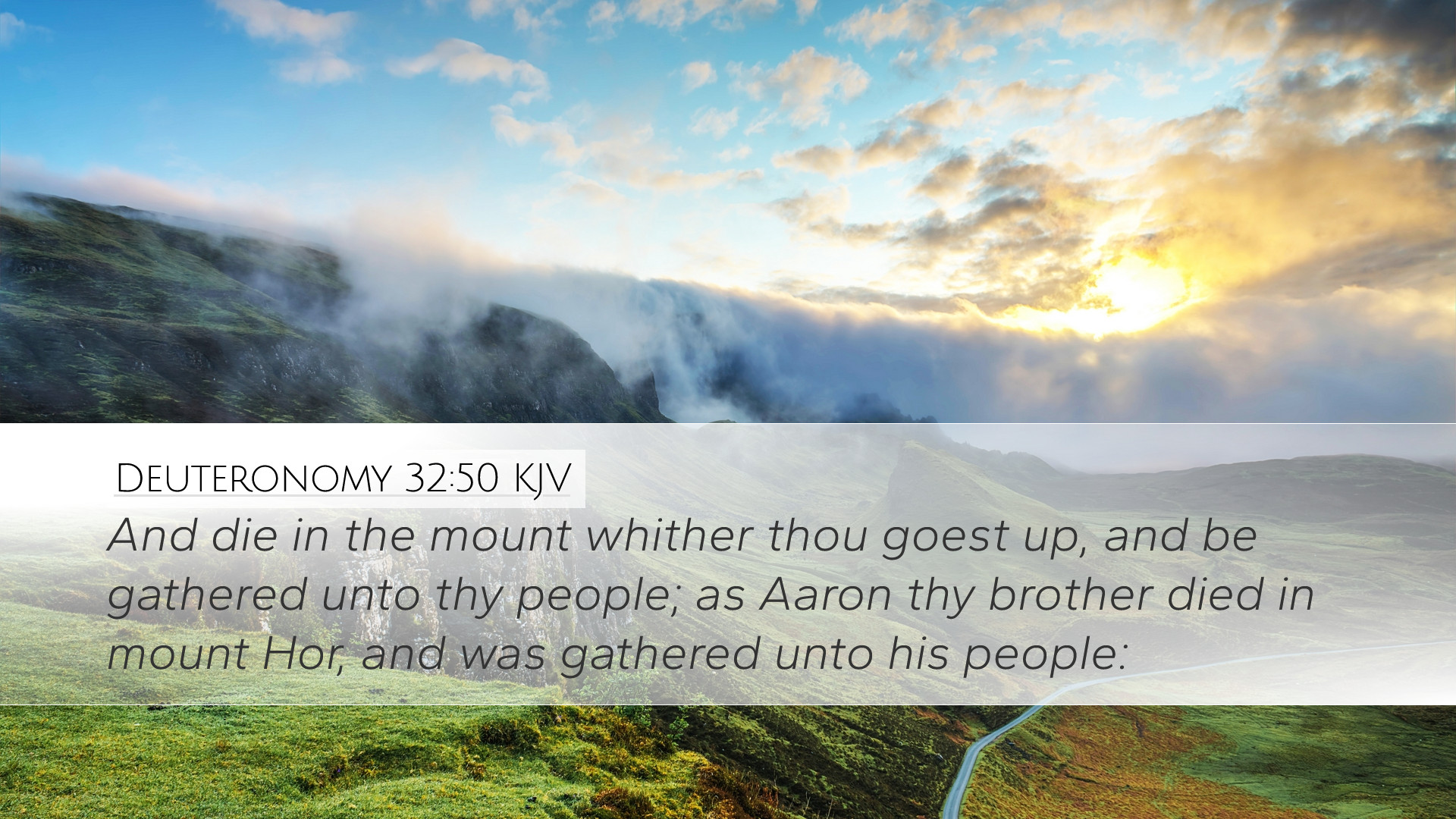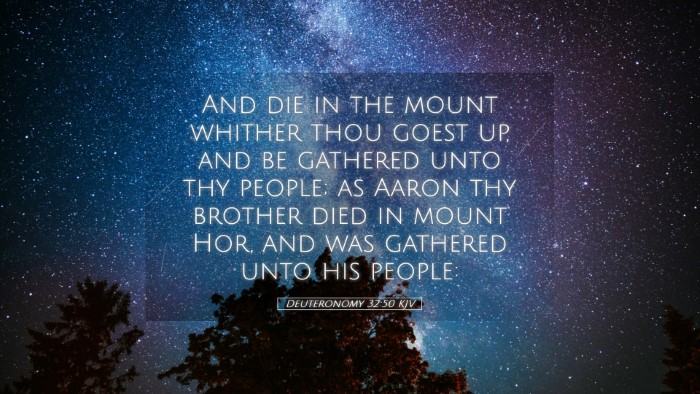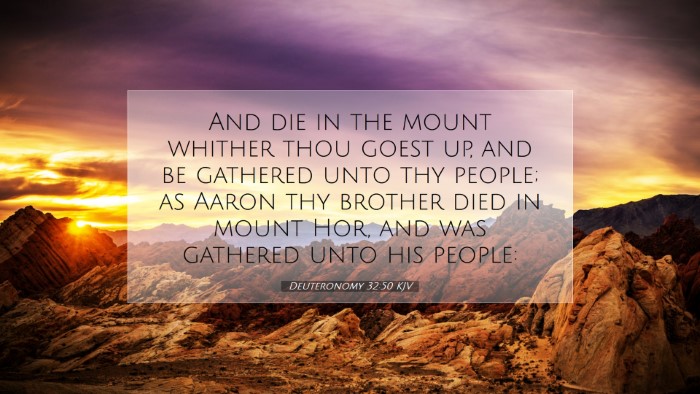Commentary on Deuteronomy 32:50
Verse Text: "And die in the mount whither thou goest up, and be gathered unto thy people; as Aaron thy brother died in mount Hor, and was gathered unto his people." (Deuteronomy 32:50, KJV)
Introduction
This verse is part of Moses' final instruction to the Israelites before his death, emphasizing the importance of obedience to God's commands. In this commentary, we will explore insights from Matthew Henry, Albert Barnes, and Adam Clarke, drawing from their perspectives to enrich our understanding of this poignant moment in Scripture.
The Context of Deuteronomy 32
Historical Background: Deuteronomy, often considered a re-statement of the Law, encompasses the law given to the Israelites as they prepare to enter the Promised Land. Chapter 32 is a song of witness that encapsulates Israel's past, God's faithfulness, and their impending challenges.
Moses' Impending Death
Moses is commanded to ascend Mount Nebo, where he will view the Promised Land before he dies. This moment is profound, as it underscores the consequences of disobedience (Numbers 20:12). God's directive carries weight, depicting not just a physical journey but a culmination of Moses' life's work.
Henry's Insights
Matthew Henry reflects upon the gravity of Moses' situation. He emphasizes that Moses' death outside of the Promised Land was a direct result of his earlier disobedience at Meribah. This narrative reinforces the notion that leadership entails accountability.
Barnes' Exposition
Albert Barnes provides a detailed examination of this verse's implications for transition and legacy. He notes that Moses, unlike Aaron, was allowed to view the Promised Land, showcasing God's mercy. His comment on "be gathered unto thy people" suggests a reunion with those who have died, which implies hope and continuity of God's promise beyond physical death.
Clarke's Commentary
Adam Clarke delves deeper into the emotional resonance of Moses’ journey. He highlights how Moses’ leadership culminates in this moment of solitude on a mountain, highlighting both the honor and the tragedy of his situation. Clarke sees this as a metaphor for human experiences, where individuals may prepare the way for others but must leave their legacy behind as life draws to a close.
Theological Implications
The events surrounding this verse provoke deep theological reflection regarding God’s justice and mercy, the nature of leadership, and the hope of resurrection.
- Divine Justice: The call for Moses to die outside of the Promised Land serves as a solemn reminder of the seriousness of God's commandments.
- Hope and Resurrection: The phrase "gathered unto thy people" signifies an eternal reward and a reunion, echoing the hope found in Christ's victory over death.
- Legacy of Leadership: Moses’ life and death prompt reflection on what it means to lead faithfully and the importance of setting an example for future generations.
Practical Applications
- Encouragement for Leaders: Leaders should prioritize obedience to God while acknowledging that they may not see the fruits of their labor.
- Reflection on Mortality: This passage invites readers to consider their own lives in light of God's overarching plan and encourages an eternal perspective.
- Community and Belonging: "Gathered unto thy people" invites believers to appreciate their place in the family of God and the communion of saints.
Conclusion
Deuteronomy 32:50 captures a transformative moment in biblical history. Through the insights of Matthew Henry, Albert Barnes, and Adam Clarke, we see a tapestry woven with themes of divine justice, leadership, hope, and eternal belonging. In engaging with this text, pastors, students, theologians, and scholars alike are encouraged to reflect on their own journeys of faith, not merely as destinations but as paths traversed in obedience to God.


